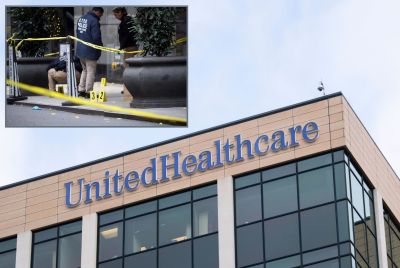U.S. auto sales wobble, Toyota revs up marketing
DETROIT/WASHINGTON - Weak auto sales for February raised doubts about the pace of U.S. economic recovery as Toyota Motor Corp readied an aggressive new discount program and faced a third congressional grilling over its safety crisis.
GM said its February sales were up 12 percent from a year earlier when the industry was near the bottom of a punishing slump and the No. 1 U.S. automaker was sliding toward bankruptcy.
The results were weaker than some analysts had expected, and GM said winter storms had kept shoppers out of dealer showrooms and reduced industry-wide sales by up to 5 percent.
In addition, GM said it would offer a new package of zero-percent financing offers for March, a move that raises the stakes in a pitched battle to win over consumers who may be ready to defect from Toyota.
The U.S. Senate Commerce Committee opened a day of hearings on Toyota's recent recalls for acceleration problems on Tuesday with another rebuke for the world's top automaker.
Senator John Rockefeller, a Democrat from West Virginia who chairs the committee, said Toyota had let concern for profits trump decision-making on safety while U.S. regulators had failed to move aggressively in their investigation of cases of unintended acceleration.
We are all here today because we know that something has gone terribly wrong - the system meant to safeguard against faulty vehicles has failed and it needs to be fixed immediately, Rockefeller said.
Toyota was set to announce its February sales results, along with other major automakers, later on Tuesday.
Industry-tracking firm Edmunds.com expects the Japanese automaker's share to drop to 12.6 percent for the month, the lowest level since 2005. Toyota had accounted for 17 percent of U.S. sales for all of 2009.
Toyota has recalled some 8.5 million vehicles globally for safety problems centered on the risk that accelerator pedals could become stuck in the open position because of a loose floor mat or a glitch in the accelerator assembly.
The safety crisis has damaged Toyota's reputation and kept dealers from selling some models in inventory through early February until fixes could be made.
Unintended acceleration in Toyota and Lexus vehicles has been linked with at least five U.S. crash deaths since 2007.
Authorities are investigating 47 other crash deaths over the past decade linked to complaints of alleged unintended acceleration in Toyota vehicles, the U.S. Department of Transportation has said.
FOCUS ON INCENTIVES
In a bid to restart sales momentum in March, Toyota is prepared to offer zero-percent financing for 60 months on popular 2010 models, including the Camry and Corolla, a person with knowledge of the plans said on Tuesday.
In addition, Toyota will offer free maintenance to returning customers who purchase a new car, as well as cash rebates, the person said.
Toyota's rivals, including GM, have been looking to gain from the automaker's continued woes and could step up their own targeted incentives in response.
GM, for example, said it would offer zero-percent for up to 72 months on remaining inventory of 2009 models and zero-percent financing for 60 months on most 2010 models.
Analysts watch what automakers do with incentives as an indicator of profitability and the strength of demand.
Edmunds.com estimated that the industry-wide average spending on incentives per vehicle sold was up almost 11 percent in February from a month earlier, at $2,588.
That came as overall sales in the month fell short of analysts' expectations for a gradual recovery beginning in the first quarter.
GM said it expected that overall light vehicle sales had slipped to an annualized sales rate of near 10.4 million units in February.
That would be down from 10.8 million in January but up from the 9.2 million sales rate of a year earlier when the industry was wracked by crisis.
Mike DiGiovanni, GM's sales analyst, said the automaker still believed that the U.S. economy was on track for a gradual recovery in 2010.
But DiGiovanni said February auto sales results underscored the remaining threats to that scenario, citing tepid consumer confidence.
We see the primary risks in housing and employment, DiGiovanni said on a conference call to discuss the sales results.
(Additional reporting by Bernie Woodall in Detroit, writing by Kevin Krolicki, editing by Matthew Lewis)
© Copyright Thomson Reuters 2024. All rights reserved.





















